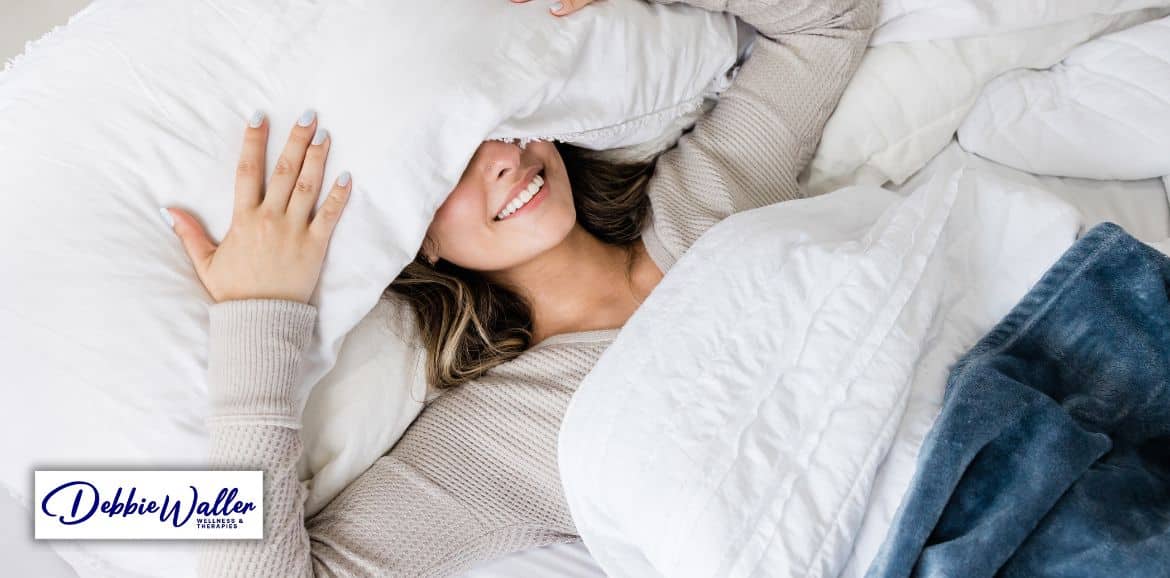Sleep is as vital to good health as food and water. You’ve probably heard that eight hours is the average recommended amount of daily sleep for most adults [1] and that far too many people aren’t getting enough. But are you aware of these less commonly known sleep facts?
#1: Sleep deprivation.
Some sleep facts are hard to come by. For example, the Guinness Book of Records no longer keeps records of deliberate sleep deprivation. They don’t want to encourage people to harm themselves by attempting it.
Before the ban, Randy Gardner, a seventeen-year-old taking part in a sleep study in December 1963, held the record for the longest period without sleep. [2] He survived eleven days without sleep or stimulants. But he suffered irritability, slow thought processes, paranoia, forgetfulness, hallucination, and negative effects on his sense of taste and smell. When he finally fell asleep, he slept for fourteen hours. He mostly recovered, though he reported severe insomnia in later years.
#2: Insomnia and driving.
In New Jersey, it’s illegal to drive after having been awake for twenty-four hours.
A driver with less than five hours of sleep is nearly twice as likely to crash as a well-rested driver. One who has slept for less than four hours is nearly twelve times as likely to crash. The increased danger is comparable to driving drunk. [3]
This is because lack of sleep causes difficulty in understanding what you’re looking at or hearing. And it slows your reaction time a lot. You might have noticed this sleep fact for yourself; when you’re tired, things sound fuzzy and it takes you longer to think.
#3: Which countries get the most sleep?
The countries whose populations get the least sleep on average are Japan, South Korea, Saudi Arabia, the Philippines, and Malaysia. They all have an average daily sleep time of under seven hours. This might be connected to the culture of long work hours in East and Southeast Asia. It can get so severe that Japan has a word, ‘karoshi’, which means death from exhaustion at work. Thankfully, companies have started taking steps to prevent this, including permitting nap times at work.
The countries which get the most sleep are New Zealand, Finland, the Netherlands, Australia, and Britain. Even in those places, the average does not reach the recommended average of eight hours. [4]
#4: Pet-related sleep facts.
Sleeping with a cat or dog may help improve your mental and physical health. The Mayo Clinic says ‘We found that many people actually find comfort and a sense of security from sleeping with their pets.’ [5] About 56% of people say they sleep with a pet in their bedroom, and some even share the bed.
Many studies show that stroking a pet can be relaxing and reduce your stress (see THIS ARTICLE for more details). So it makes sense that snuggling up with Fido or Felix at night could be helpful. A study has shown that pet owners are less likely to use medication to help them sleep than those who don’t have pets. [6] So having a dog in bed may reduce insomnia, but it isn’t the best answer for everyone! [7]
#5: Lack of sleep is used in some places as a form of torture.
Sleep deprivation can cause anxiety, depression, high blood pressure, inflammation and heart disease, a weakened immune system, and reduced release of leptin and insulin, causing weight gain and Type 2 diabetes. If it is caused by physical and mental illness, it can also make symptoms much worse.
Of course, being ill or stressed about your health makes it even harder to sleep, so get help from a therapist if you find your worry levels interfere with your ability to get a good night’s rest.
#6. Getting a good night’s sleep
To prevent ill effects from these sleep facts, read our other articles, many of them give useful information to help you get a good night’s sleep, especially
For others, put ‘sleep’ in the site search or use the blog tag. And if you’re still struggling, contact me for help to get back into good sleep habits.
References:
[1] Most adults need between seven and nine hours of sleep, according to the National Sleep Foundation. https://www.sleepfoundation.org/how-sleep-works/how-much-sleep-do-we-really-need
[2] https://en.wikipedia.org/wiki/Randy_Gardner_sleep_deprivation_experiment
[3] https://www.autoexpress.co.uk/car-news/consumer-news/97936/driving-when-tired-is-equivalent-to-driving-when-drunk
[4] https://www.valuewalk.com/2019/05/top-5-countries-least-most-sleep-ranked/
[5] https://www.sleepadvisor.org/sleeping-with-pets/
[6] https://www.sleepfoundation.org/animals-and-sleep/sleeping-with-pets
[7] https://casper.com/blog/sleeping-with-your-dog/
Author: Debbie Waller is a professional therapist, specialising in stress, anxiety and related issues, including gut-directed hypnotherapy to help with the symptoms of IBS. She also offers EMDR/Blast which is used for trauma, PTSD, phobias and OCD. For more information on any of these services, phone 01977 678593.
Researcher: Rae Waller is an experienced researcher and writer with a special interest in mental health issues. Rae offers drafting, fact-checking, proofreading, and editing for anything from a leaflet to a website, a blog or a book, and can also provide diversity reading, especially for LGBTQ+ and autism-related issues. Please contact rae@debbiewaller.com for further information.





